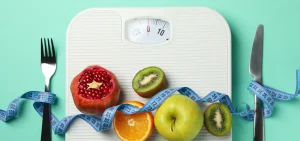Do you need sugar and coffee to get through the day because you always feel tired? In today’s fast-paced world, fatigue has become a common occurrence. Millions of people are looking for ways to get more energy in the long run. The good news? You don’t have to buy expensive vitamins or go to extreme lengths to feel refreshed. Nature offers simple, scientifically proven ways to combat fatigue and boost energy.
These 10 natural methods can help you overcome fatigue and rejuvenate healthily. Examples include improving sleep and harnessing the power of exercise and nutrition. Let’s take a look at these simple, actionable strategies that will leave you feeling refreshed and ready to go.
Intelligent Hydration, Instant Energy Replenishment:
One of the most common reasons people feel tired is because they don’t drink enough water. Lack of water can leave you feeling lethargic, confused, and demotivated. Drink at least 8 to 10 glasses of water every day. To further cleanse your body, add lemon to your water in the morning. Herbal teas, coconut water, and vegetables with a high water content, such as watermelon and cucumber, can help you stay hydrated. If you feel tired in the afternoon, skip the coffee. Instead, drink a large glass of water. You may just need water, not caffeine.
Improve Sleep Quality:
Lack of sleep is a major cause of energy loss. Focus not only on the amount of sleep you get (7-9 hours) but also on the quality of your sleep. Create a bedtime routine by dimming the lights an hour before bed, keeping screens away, and making sure your room is cool and dark. Foods rich in magnesium, such as spinach and nuts, or warm chamomile tea can help you sleep better. If you feel tired when you wake up, expose your body to sunlight for 10 minutes in the morning. This resets your circadian rhythm and signals your body to stay awake during the day.
Move Your Body a Little:
It may seem strange to exercise when you’re tired, but exercise improves blood and oxygen flow, giving you more energy. You don’t have to do a heavy workout to wake up. Short dance breaks, ten-minute walks, or stretching exercises can also be effective. Yoga and Tai Chi can effectively relieve fatigue and calm the mind. Consistency is key: even short bursts of exercise throughout the day can help keep your energy levels up.
Eat Foods that Give You Energy:
Sugar and processed foods can sabotage your motivation. Make sure your meals are balanced and packed with foods rich in healthy fats, such as oats, sweet potatoes, eggs, beans, and nuts. Iron-rich foods, such as spinach and red meat, can prevent fatigue caused by anemia, while vitamin B12, found in eggs and cheese, can help improve nerve function. Instead of chips or candy, try nuts, Greek yogurt, or a piece of fruit. Eating smaller meals more often will also help you stay energized.
Make the Most of Breathing Exercises:
When you’re stressed or sitting still for too long, your brain doesn’t get enough air, which can make you feel tired. Try inhaling for 4 seconds, holding your breath for 7 seconds, and then exhaling for 8 seconds. This activates the parasympathetic nervous system, which makes you feel less stressed and more alert. Another quick fix? When you feel tired, take five deep breaths. This will give you instant energy.
Use Mindfulness to Reduce Stress:
When you worry too much, your body goes into fight-or-flight mode, which saps your energy. Even meditating for just 5 minutes a day can lower your cortisol levels and clear your mind. You can find free coaching sessions on apps like Insight Timer. You can also write in a notebook or spend time in nature to relax. When you worry less, you’ll feel more energized throughout the day.
Natural Herbs for More Energy:
Herbs and adaptogens can help combat fatigue without the crash that caffeine can. Ginseng can make you stronger, while ashwagandha can help your body worry less. Peppermint oil can make you more alert, and matcha green tea can give you calming energy. Always consult your doctor before taking any new vitamins, especially if you’re already taking medications.
Reduce Your Sugar and Caffeine Intake:
Caffeine can make you feel more alert quickly, but too much of it can make you feel tired. Gradually reduce your coffee intake and switch to green tea or golden milk (turmeric latte). Instead of sugar, eat whole vegetables or dark chocolate. Sugar raises your blood sugar levels, which makes you feel tired afterward. If you want to sleep well, avoid coffee in the afternoon.
Enjoy the Sun and Fresh Air Every Day:
If you live indoors and use artificial light, you disrupt the natural energy cycle. The minimum time you spend outside per day is 15 to 20 minutes. Sunlight increases the production of serotonin and vitamin D, both of which are associated with more energy. Open the windows to let in some fresh air, or go for a walk with a colleague to get some exercise and enjoy nature.
Pay Attention to Your Body’s Rhythm:
Energy levels rise and fall naturally. Keep track of your most productive times (are you a morning person or a night person?) and schedule hard work around those times. Take breaks when you need them. A 20-minute nap or some downtime can help you feel better instead of continuing to feel tired.
Conclusion:
You don’t have to feel tired all the time. By following these natural energy tips (eating healthier, exercising, staying hydrated, and managing stress), you can stop feeling tired and feel great every day. Small changes over time can have a lasting effect, so start with a few small tips and gradually expand. When you take care of your body, it will grow and thrive. For your energy, focus, and long-term health, it’s best to ditch the quick fixes and start building these habits.
FAQs:
1. What’s the fastest natural way to get more energy?
You can get instant energy from taking a deep breath, drinking a glass of water, or taking a brisk 5-minute walk, without the need for coffee or sugar.
2. Can certain vitamins help you feel less tired?
Yes! If you don’t get enough iron, vitamin B12, calcium, or vitamin D, you may feel tired. Blood tests can tell if you need vitamins.
3. How does worry wear you down?
Chronic worry keeps cortisol levels high, leading to adrenal fatigue. Mindfulness and relaxation techniques can help restore balance.
4. Does a nap make you more alert?
A 10- to 20-minute nap can keep you awake, but longer naps can make you drowsy. If you want to sleep well, avoid napping after 3 p.m.
5. Why do I fall asleep after drinking coffee?
Adenosine is a chemical that helps you sleep. Caffeine blocks this effect, but once the effects wear off, adenosine kicks back in, causing a crash. Switching to matcha or cutting back on alcohol can help.




